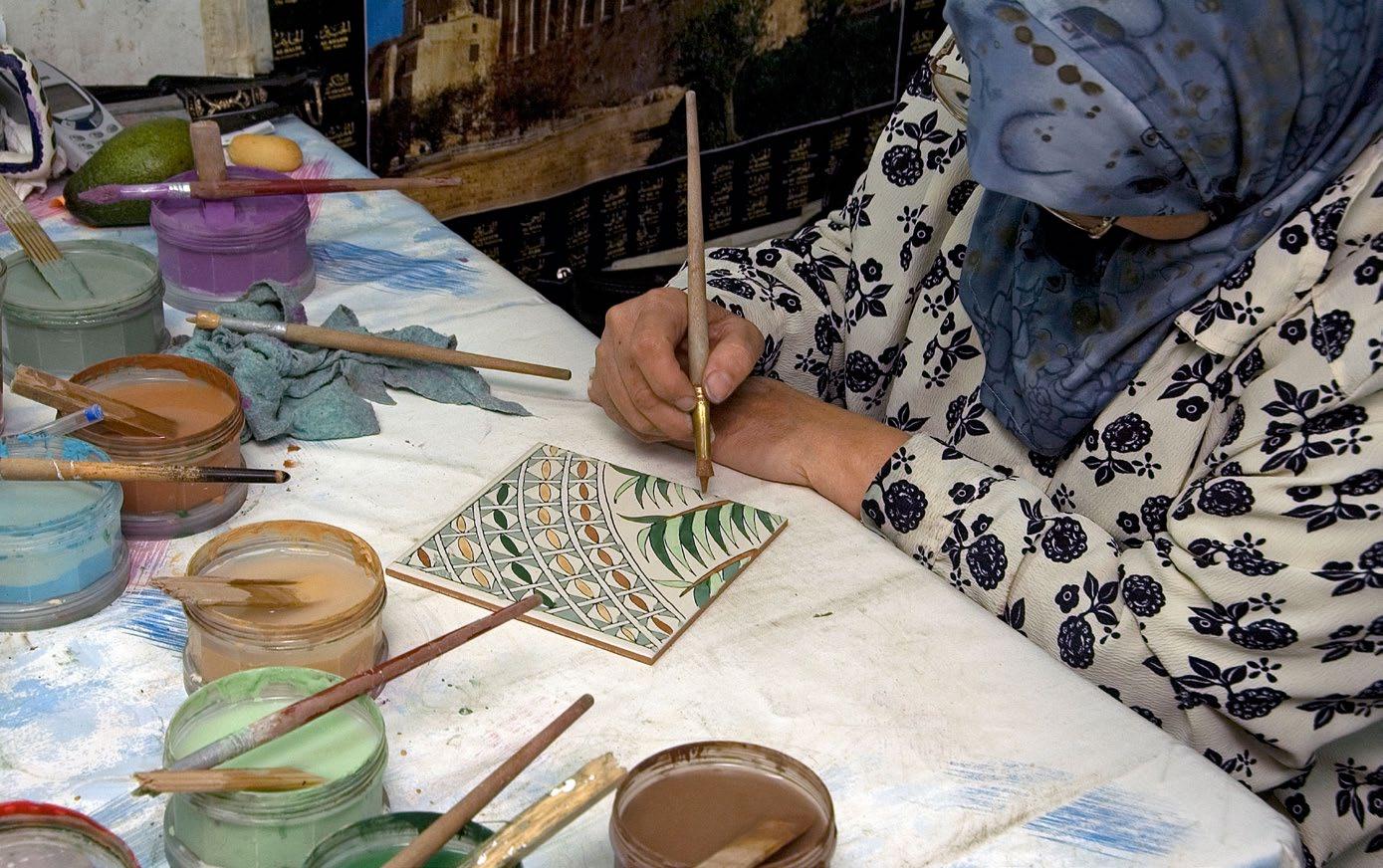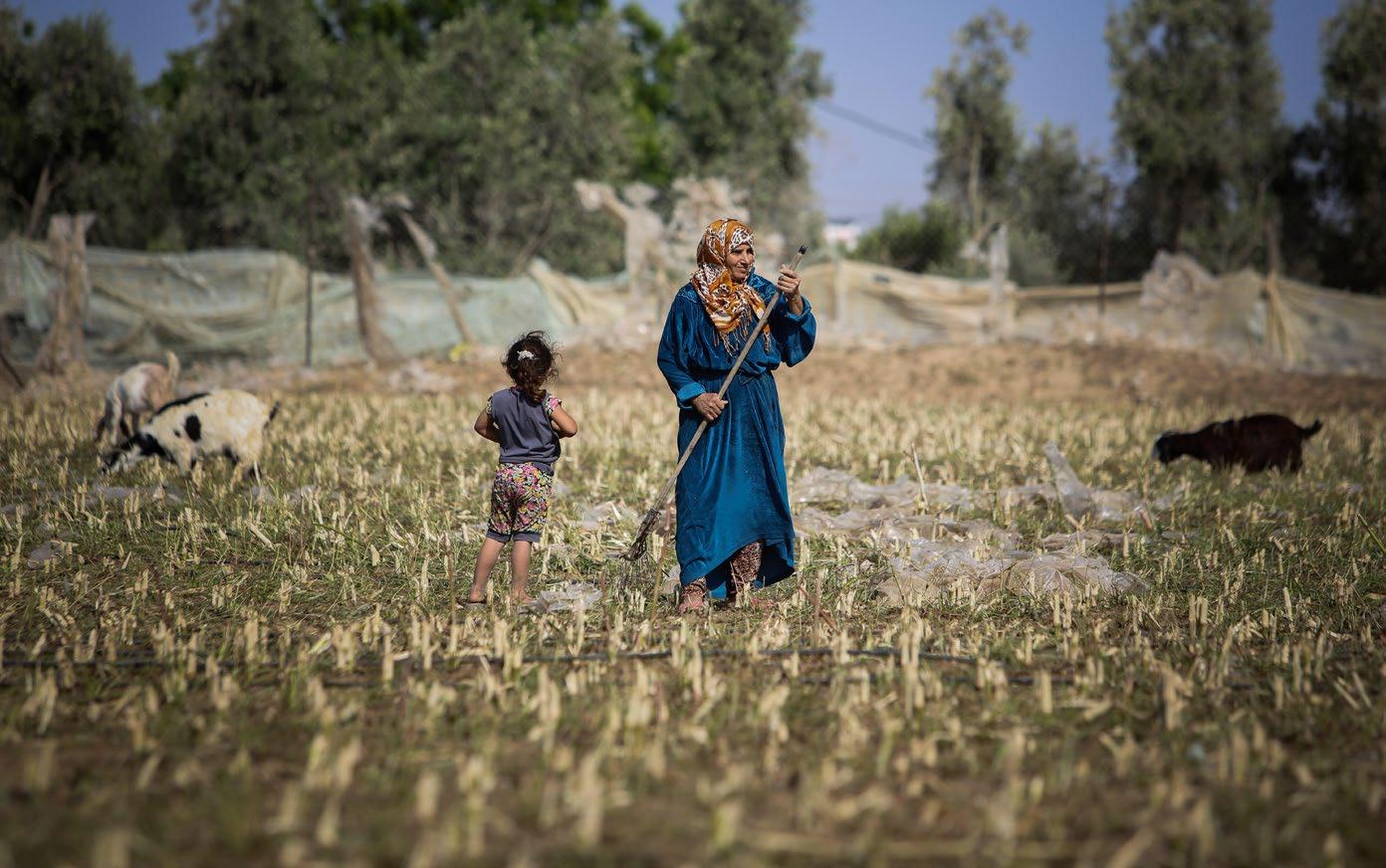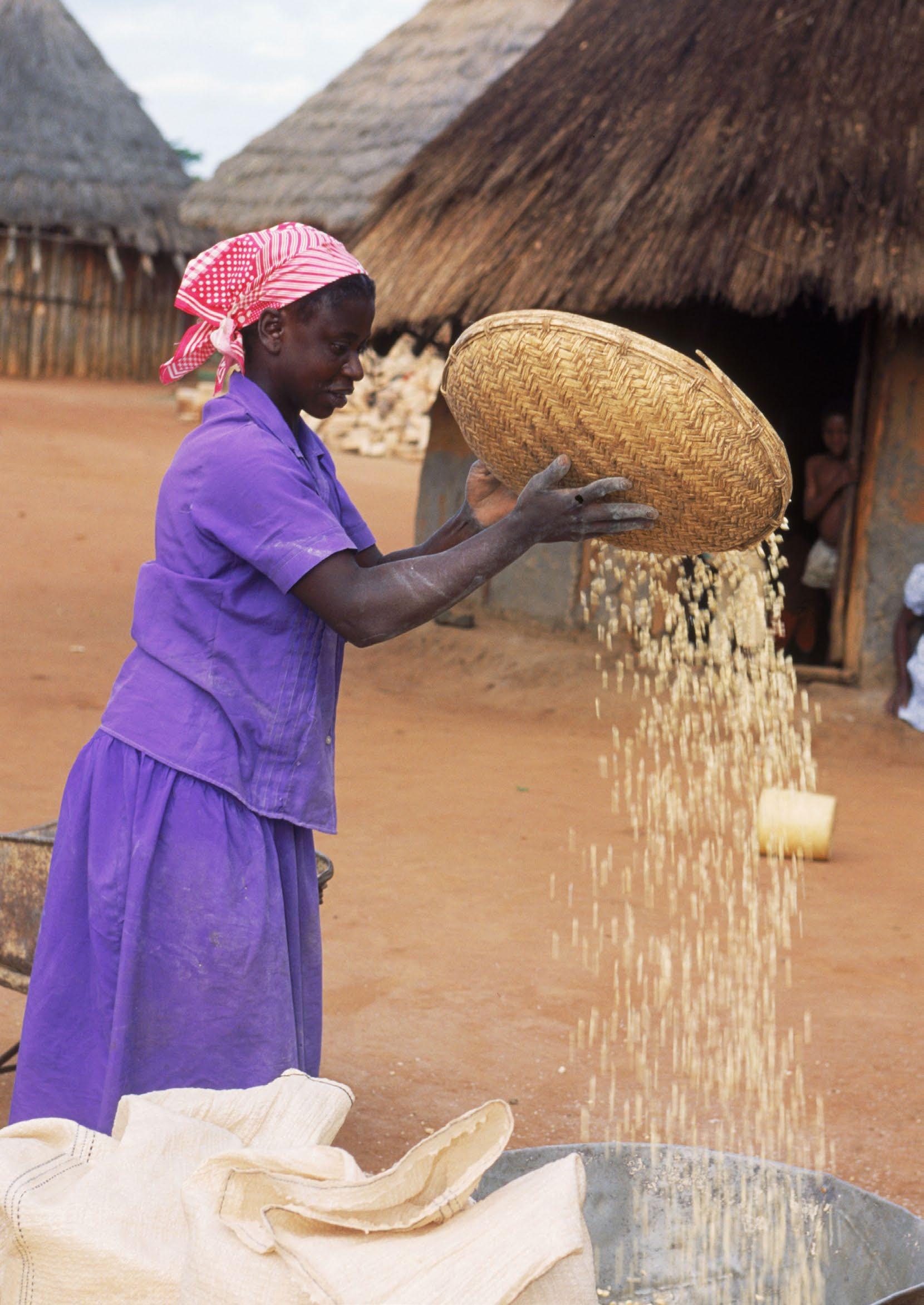
12 minute read
Palestine
1. INTRODUCTION
Advertisement
The Palestinian economy faces unique and challenging external constraints that hinder its development. The Israeli occupation, the restriction on people’s movement, the lack of full control over the territory and the absence of a unique currency are all factors that thwart the prospects for growth and development.
Financial exclusion remains an issue which contributes to further exacerbate the economic growth potential. In 2016, the Palestinian Monetary Authority (PMA) conducted a study to assess the access to financial services which revealed a financial inclusion rate of 36.4 percent, with only 15.4 percent adult women owning a bank account against 42.1 percent for men with a similar gap for other financial products. In the case of outstanding loans from MFIs, the gender gap showed to be minimal with 2.8 percent for men and 3 percent for women.
Financial exclusion also affects MSMEs, which constitute 95 percent of businesses and contribute to approximately 16 percent of GDP. Despite his relevance, the sector remains highly underserved, with loans to MSMEs accounting for 17 percent of the total credit portfolio of banks and MFIs in 2016.
2. ENABLING LEGAL AND REGULATORY ENVIRONMENT AND PUBLIC POLICIES
Palestine has recently taken an active approach towards gender equality, women’s economic empowerment, and financial inclusion.
As a general measure to enhance policies and increase protection, Palestine established the Ministry of Women Affairs, dedicated to improve the status of women, youth, children, marginalized men and other groups. The ministry’s role is to enhance Palestinian women capabilities so that they are better equipped to participate and contribute to the national economic, political and social spheres. Among the scope of the ministry is to protect women from violence, promote gender equality, including with policies related to integration in the labour market. Specifically related to financial inclusion, the Ministry of Economy is also engaged with different measures that facilitate access to finance.
The Ministry of Economy established a definition of MSMEs with a categorization based on the number of employees and the annual turnover. While no specific definition for women-owned/led MSMEs has been developed yet, a unified MSME designation is a fundamental step to address and design effective financial inclusion policies.
In addition, the Ministry has enacted a specific measure in an attempt to eliminate barriers for women-owned/ led MSMEs. While no formal and legal constraints exist, women face additional challenges compared to men when it comes to access to financial services. Among the main hurdles is the lack of collateral in the form of non-movable assets, which affects women more than men. In order to overcome the issue, the Ministry of National Economy established a registry of movable assets to facilitate the provision of credit to women. Nevertheless, the initiative has not yet had the anticipated outcome mainly due to the national political situation, which leads to a lack of trust in the registry from service providers. As the land designated as Palestinian Territories is not fully controlled by Palestinians, as is the case for Area C which remains under Israeli military control, movable assets may present issues in terms of enforceability in court and financial institutions still prefer to rely on non-movable assets.
3. FINANCIAL SECTOR
3.1. THE ROLE OF THE PALESTINIAN MONETARY AUTHORITY
The PMA is the national supervisory authority for the financial sector which regulates commercial banks, MFIs and moneychangers. The PMA became an AFI member in 2010, showing a clear commitment towards financial inclusion.
In collaboration with the PCMA, the PMA has the responsibility to advance financial inclusion in the country and to elaborate and implement the National Financial Inclusion Strategy (NFIS). The first NFIS was elaborated in 2018 and covers the period 2018-2025.
50%
The overall objective stated in the NFIS is to increase financial inclusion to at least 50 percent by 2025.
The strategy explicitly recognizes the role of women in achieving the goal and sets, among others, two relevant objectives that directly or indirectly target womenowned/led MSMEs: > Promote financial capability among women, youth and unemployed people; > Increase financial capability among MSMEs, with special emphasis on women-operated MSMEs.45
The NFIS has an eight-year implementation plan elaborated on the basis of targets and sub-targets defined in an Action Plan.
In 2019, the PMA also published a Microfinance Strategy (2019-2023) which is aligned with the NFIS and aims at strengthening the sector to improve financial inclusion, especially for the most marginalized groups including women and rural communities.
In terms of specific measures, the PMA has introduced several instructions and guidelines: > In 2019, the PMA published Instruction No.6 on the
Financial Inclusion Account. The provision specifies that banks should provide a bank account that includes basic banking services for low-income, financially excluded individuals, specifically women.
The objective is to enable individuals with low and medium incomes to access and use basic financial products. The account and the provision of a debit card are free of charge.
The following banking services are included: - Deposit and direct cash withdrawal and deposit of checks for collection; - Deposit and cash withdrawal throughout ATM; - Internet banking; - Automatic payment of invoices from the account; - Issuing and receiving funds internally and externally; - ATM card; and - Prepaid card. > In 2020, the regulatory authority conducted activities related to financial inclusion, specifically launching the Financial Inclusion Website, in collaboration with the PCMA. The Arabic website is intended as a communication channel and a source of information on financial inclusion.
45 PMA. National Strategy for Fianncial Inclusion (2018-2025). Available at: https://www.pma.ps/Portals/0/Users/002/02/2/Publications/
Financial%20Inclusion%20publication/Palestine%20Financial%20
Inclusion%20Strategy.pdf.
> In 2020, the PMA also made important progress towards the transition to digital payments and electronic systems to carry out financial transactions. In particular, the PMA developed a regulatory framework for licensing companies in the field of electronic payment services, including e-wallet and prepaid cards. In the same period, the
PMA granted licenses to four e-payment companies, as part of the banking system under the PMA’s regulation and supervision: - National Electronic Payment Company (Jawwal Pay) for e-wallet prepaid cards; - PalPay: e-wallet (My Wallet); - Middle East Payment Services: digital payment systems; - Malchat Electronic Payment Services: electronic wallet. > In collaboration with the Palestinian Banking
Institute for content development, the PMA developed an SME Platform with the aim of providing knowledge support to SMEs. The platform is overall gender neutral but participation of women-owned
MSMEs is encouraged through partner organisations.
Through the platform, four MoUs were signed with local NGOs which include components dedicated to women to increase their capabilities and to help women-owned MSMEs enter the formal financial sector. > As a measure against the negative impact of the
COVID-19 pandemic, the PMA introduced the
Estidama Program (Sustainability, in Arabic) providing USD 300 million in financing to banks for on-lending to affected SMEs. Through the program, the PMA has reached 359 SMEs, of which 44 percent medium enterprises, 17 percent small enterprises and 7 percent microenterprises. A second phase of the Estidama Program was launched in May 2021 which included a USD 10 million tranche specifically dedicated to the microenterprise sector at 0 percent interest and loans up to USD 10,000 with a positive discrimination towards women-owned MSMEs in the form of simplified procedures that included also semi-formal businesses. > In connection with the impact of the global pandemic, the PMA plans to conduct a survey to understand the post-COVID-19 financial inclusion challenges which should provide additional insights with regards to the roadmap for women access to finance and DFS. > Finally, the PMA is undergoing a review of the Credit
Scoring System to include a positive gender discrimination element thereby promoting women’s access to finance. The system will include a gender variable which will entail a scoring of 1 for female and 0 for male. The new system will be launched by in early 2022.

3.2. COMMERCIAL BANKS
As of November 2021, the banking sector comprises seven local commercial banks and six foreign banks with a total of 379 branches across the Territories.
Commercial banks in Palestine have established partnerships and agreements with several international development and financial institutions with programs and credit lines specifically targeting women-owned/led MSMEs.
Bank of Palestine (BOP) is a prominent example of a commercial bank that has invested in MSMEs. The bank was established in 1960 and is one of the largest banks in Palestine, with a market share of >30 percent in both loans and deposits. The bank has the largest SMEs portfolio in the country and has entered into partnerships and agreements with different international institutions to enhance their participation in the segment. > In 2015, BOP signed with IFC an agreement to receive a credit line and technical support to develop products and policies to serve SMEs. In
October 2015, BOP launched the Felestineya Mini-
MBA program to enhance WSMEs business performance. The initiative includes access to financial products in combination with non-financial services, such networking, mentoring, and training. > With EBRD’s Women in Business Programme, BOP entered into an agreement to support Palestinian women entrepreneurs as part of the COVID-19 response. The program aims at improving access to finance for women-led SMEs and enhancing their participation in the local market. The contract consists of a USD 15 million facility of which USD 2 million earmarked to women-owned/led MSMEs. > Finally, BOP will receive from EIB a USD 50 million credit line for overall response to the COVID-19 crisis and for on-lending to SMEs.
In addition, BOP developed a range of SME-tailored products such as equipment loans based on moveable assets, overdraft facilities, and other innovative products designed for women, including collateral-free loans and gold loans.
Besides financial products, the bank also pioneered financial literacy programs through workshops and training of bank staff, developed an online business toolkit to support SMEs and women in business. Along these lines, in November 2021, the Ministry of National Economy and BOP conducted awareness sessions for women owners of SMEs in different governorates. Among commercial banks, the National Bank is also contributing to women’s financial inclusion with a targeted fund of USD 3.5 million for WSMEs which offers 0 percent interest loans. Through their activity, the bank increased the number of accounts held by women to 35.5 percent of clients as of 2019.
3.3. NON-BANK FINANCIAL INSTITUTIONS
The microfinance sector in Palestine counts eight licensed MFIs which fall under the supervision of the PMA.
Among the MFIs, Asala for Credit and Development Company (ASALA) is the institution which has always had a clear focus on women and providing services that support poor women promoting their engagement in economic activities which can improve their living standards and social position. ASALA was established as a for-profit microfinance company in 2014 by the Palestinian Businesswomen’s Association and the Palestinian Sharakat Investment Fund, though it has been operating as non-profit organization since 1997. In 2017, ASALA signed a USD 1.5 million loan agreement with SANAD Fund for MSME (SANAD) for on-lending to women-owned micro and small income-generating activities, mainly in rural areas and in agriculture.
4. CIVIL SOCIETY
In Palestine, NGOs play a critical role in supporting and enhancing the role of women. Some of the initiatives that stemmed from local organizations, often with the support from international entities, have been identified as examples of how civil society can be a driving force towards the empowerment of women. > The Palestinian Agricultural Development Association (PARC) is a partner of Oxfam International. In 1999,
PARC developed a pilot Cooperative Association for
Saving and Credit (CASC) which evolved, by 2005, into the Union of Cooperative Associations for Saving and Credit (UCASC) as a fully registered entity under the Ministry of Labor with the objective of promoting women’s economic empowerment, support women in poverty to access financial services and develop income-generating activities.
In 2013, UCASC became fully independent from PARC and, as of 2018, represents 12 cooperative associations across the West Bank, in 216 towns and villages and 5,375 individual members.46 Ninety-five percent of members have gained control over financial resources leading to other opportunities such as buying land.
46 Oxfam. Social enterprise, women’s empowerment and access to finance MedUP! project, Ramallah, West Bank, OPT
Palestine case study. Available at: https://oxfamilibrary. openrepository.com/bitstream/handle/10546/620972/ cs-womens-empowerment-finance-palestine-260320-en. pdf;jsessionid=5A4A5C9C36508E3EE394EB2DDFDB0D15?sequence=1.
> The Palestinian Working Woman Society for
Development (PWWSD) was established in 1981 to support and empower working Palestinian women by increasing their participation in the labor market. To achieve their objective, PWWSD focuses on activities that address female unemployment, with a focus on income-generating projects, cooperatives, and trade unions. In addition, PWWSD intervenes in projects related to raising awareness on women’s economic rights, labor laws and inheritance rights, and provides expertise and support in mainstreaming gender in policies, strategies and projects.
5. INTERNATIONAL FUNDING
The international community has an important presence in Palestine as the country strongly relies on international financial support due to the constrained political situation.
In December 2020, the EU and the Palestinian Authority (PA) established the EU-Palestine Investment Platform to foster policy dialogue between the PA, European Financial Institutions and other local and international stakeholders on how to better attract investment into Palestine. Within the context of the platform, the EIB signed seven agreements amounting to a total of USD 425 million to support Palestinian MSMEs, including deals with banks and MFIs for on-lending to businesses.
In addition, the PMA and the EU organized a working group on SME finance affiliated to the EU Palestine Investment platform with emphasis on SMEs, policies and legal frameworks that must be initiated to enhance access to finance.
With regards to women MSME finance and as a response to the COVID-19 pandemic, a UNDP initiative seems particularly relevant and innovative. The UNDP’s Palestinian Accelerator Lab is testing an online platform to market women’s products. The pilot consists in linking 20-30 women cooperatives and small producers to an online marketing platform, yummy.ps, to create an online store for traditional food products. The project originated as one of the impacts of COVID was that people started dining in and the idea was to support women-led MSMEs find a market for their product as well as promote and strengthen different supply chains, involving marginalized segments of the population such as small farmers, etc. The project is experimental in that it is also testing the use of digital technologies, such as mobile applications, e-payment, etc. The Accelerator Lab partnered with the local NGO Bas Baladi, which markets women and small farmers’ food products, to support the logistics of the project, through sourcing food products, ensuring quality, and advising women MSMEs on how to improve the quality of their product using feedback from customers.
The project constitutes also an interesting pilot in terms of digital technologies and DFS. The use of online payments in Palestine remains limited and access to international payment channels, such as PayPal, is restricted due to the political situation. The Accelerator Lab will be testing whether there will be an increase of the pay-in-advance options from customers of yummy. ps using local e-payment solutions like PalPay, the first Palestinian e-payment service provider established by BOP, and Jawwal Pay, an integrated e-wallet solution established in 2019 by the largest Palestinian mobile network provider, instead of cash-on-delivery.47
47 UNDP. From Crisis to Opportunity: Leveraging Digital Economy Tools to
Support Economic Recovery of Palestinian Women-led MSMEs. Available at: https://www.ps.undp.org/content/papp/en/home/blogs/fromcrisis-to-opportunity.html.










